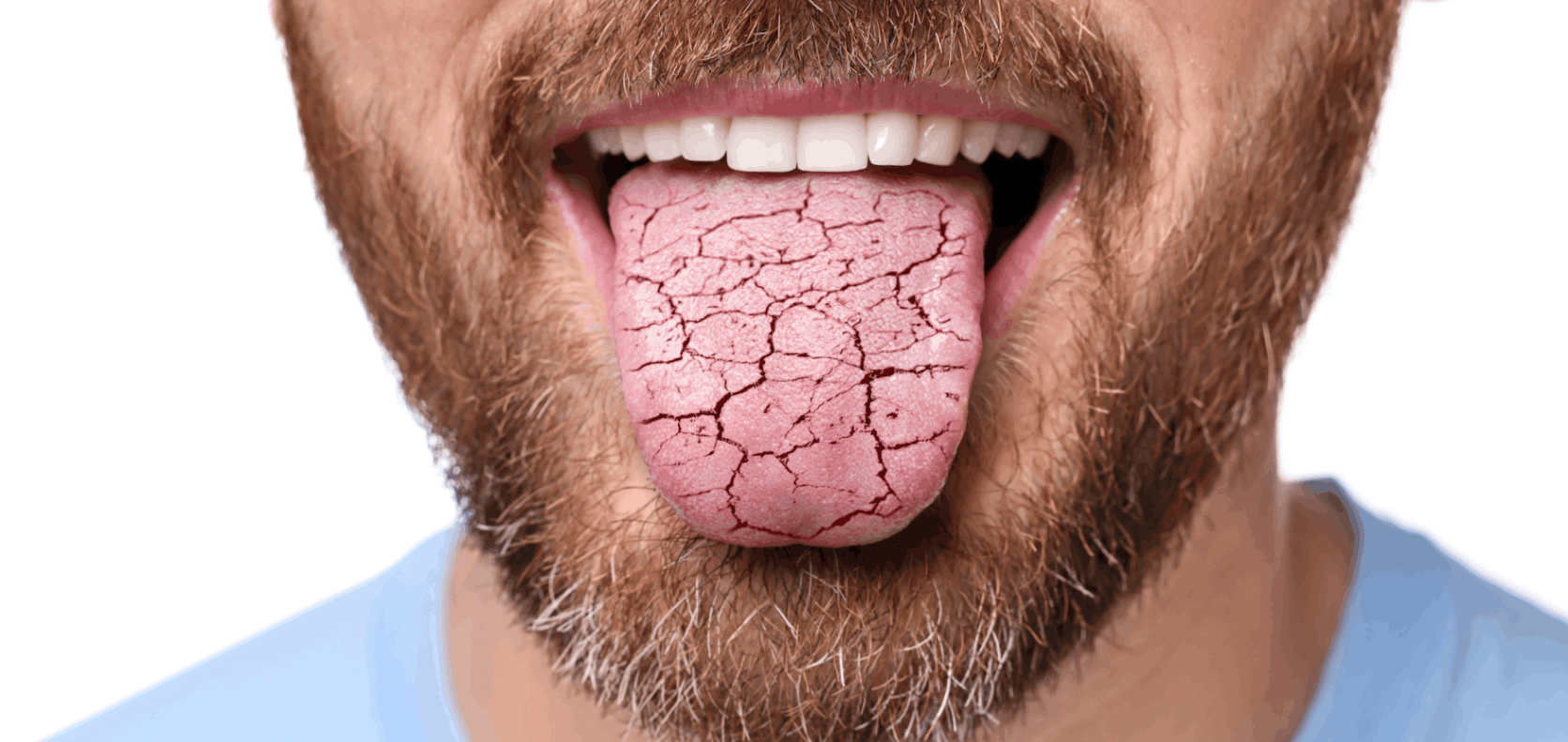What are the Symptoms of Dry Mouth?
Have you ever felt like your mouth was as dry as the Texas heat? That sticky, uncomfortable sensation can be more than just annoying it might be a sign of dry mouth, also known as xerostomia. And trust us, it's more common than you think. Whether you're sipping water non-stop or struggling with bad breath, dry mouth could be affecting your daily life and even your dental health.
Let’s walk through the signs, causes, and what you can do especially if you're wearing denture in Jarrell or nearby.
What is Dry Mouth?
Dry mouth happens when your salivary glands don’t produce enough saliva to keep your mouth moist. It might sound harmless, but this condition can cause real discomfort and even lead to dental issues if not treated.
Why Saliva Matters
Think of saliva as your mouth’s natural bodyguard. It helps wash away food particles, neutralizes acids, and keeps everything moving smoothly. Without enough saliva, your mouth can feel irritated and more vulnerable to damage and disease.
Common Symptoms of Dry Mouth
People with dry mouth often experience a sticky or dry feeling that just won’t go away. You might feel thirsty all the time or find it hard to talk and swallow. Your lips may crack, your tongue may feel rough, and bad breath becomes a constant visitor. Some people even feel a burning sensation, especially on the tongue. For those wearing dentures, dry mouth can make it harder for them to stay in place or feel comfortable.
Is It Just Dehydration?
You might wonder if you're just not drinking enough water. While dehydration can contribute to dry mouth, it’s not always the cause. Medications, medical conditions, or damaged nerves can also lead to reduced saliva. So if you’ve been hydrating but still have symptoms, it could be something more.
Dry Mouth & Dentures
Wearing dentures when you have dry mouth can be a real struggle. Dentures depend on natural moisture for grip and comfort. Without enough saliva, they may slip out of place, cause sore spots, or even make it harder to eat and speak properly. Anyone using a denture in Jarrell and experiencing dry mouth should consider getting professional advice to improve comfort and fit.
Causes of Dry Mouth
There are many reasons why your mouth might feel dry. Certain medications are known to reduce saliva production. Aging also plays a role, as the body naturally slows down saliva production over time. Radiation therapy in the head or neck area can harm salivary glands. Medical conditions like diabetes, Parkinson’s disease, and autoimmune disorders such as Sjögren’s syndrome are also linked. Even lifestyle habits like smoking or excessive caffeine can make dry mouth worse.
Dry Mouth in the Morning
If you wake up with a dry, parched mouth, it could be due to breathing through your mouth while sleeping or snoring. These habits can dry out your mouth overnight, especially in cooler or drier environments. It’s often a surprise how much of an impact sleeping with an open mouth can have on your oral comfort.
How It Affects Your Teeth
Saliva plays a big role in protecting your teeth. Without it, bacteria and food particles stick around longer, leading to tooth decay, gum disease, and bad breath. Teeth may become more sensitive or prone to cavities. Over time, dry mouth can cause real damage to your oral health if not addressed.
How to Relieve Dry Mouth
There are ways to find relief, even if you can’t completely eliminate the problem. Drinking small sips of water throughout the day can help. Chewing sugar-free gum or sucking on sugar-free candies encourages saliva flow. Using mouthwashes that are alcohol-free and moisturizing mouth sprays or gels can also provide comfort. Running a humidifier while you sleep adds moisture to the air, which can help reduce dryness.
When to See a Dentist
If your dry mouth symptoms are lasting more than a few days or are interfering with your ability to eat, talk, or wear dentures comfortably, it’s time to seek help. A dental professional can determine the cause and offer solutions that go beyond at-home remedies.
Best Home Remedies for Dry Mouth
Some natural remedies can help ease dry mouth. Aloe vera juice is known for its soothing and hydrating properties. Coconut oil can be used for oil pulling, which keeps your mouth moist and reduces bacteria. Herbal teas like chamomile or ginger are also helpful. Staying hydrated with electrolyte-rich drinks can maintain better moisture balance.
Foods That Make It Worse
Certain foods can make dry mouth worse. These include spicy dishes, salty snacks, dry or crunchy items like crackers, acidic fruits such as lemons and oranges, and sugary sweets. If you suffer from dry mouth, avoiding these foods or consuming them in moderation can ease your discomfort.
Tips for Denture Wearers
Denture wearers who struggle with dry mouth should take extra care. Removing dentures at night allows your gums to rest. Keeping dentures clean and moisturized can prevent irritation. Special moisturizing products for dentures are available that can improve comfort. And don’t forget the fit matters. Regular dental checkups ensure your dentures stay secure and functional.
Final Thoughts
Dry mouth might seem like a small inconvenience, but it can lead to bigger problems if ignored. Whether it’s causing discomfort, damaging your teeth, or affecting how your dentures fit, it deserves attention. The good news is that with a few adjustments and the right dental care, you can find lasting relief. If you're dealing with dry mouth and using a denture in Jarrell, the right professional guidance can make a world of difference.

Comments
Post a Comment